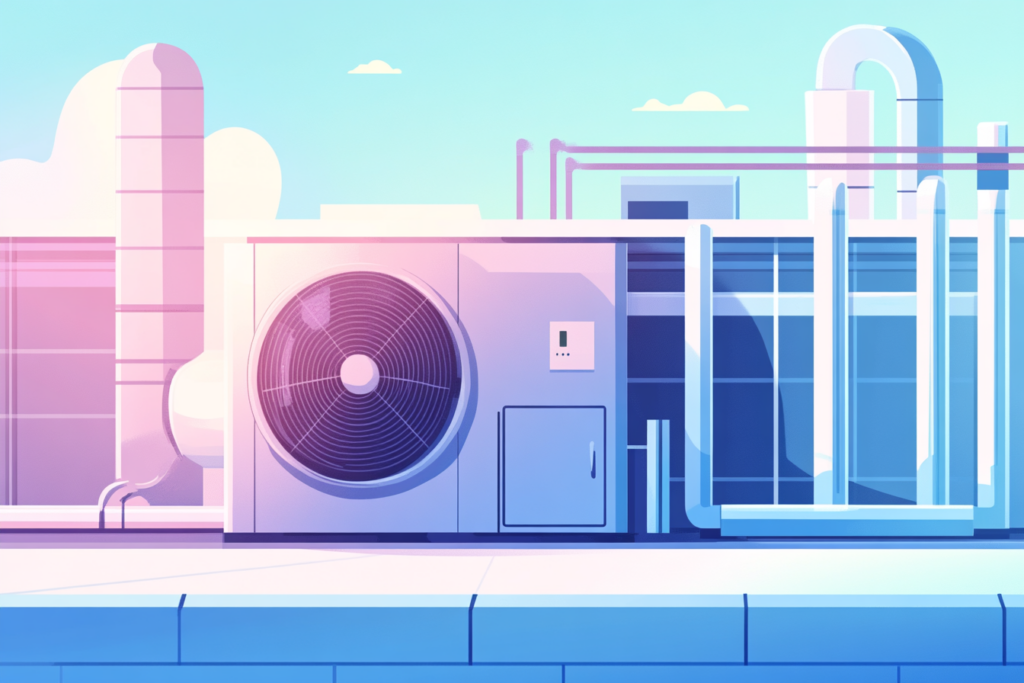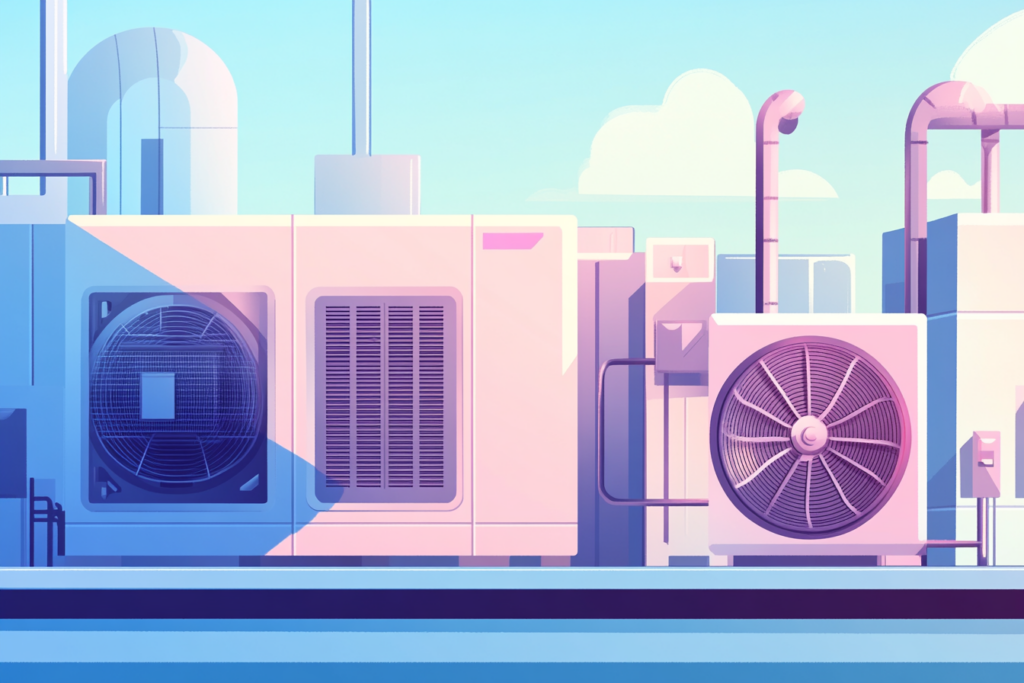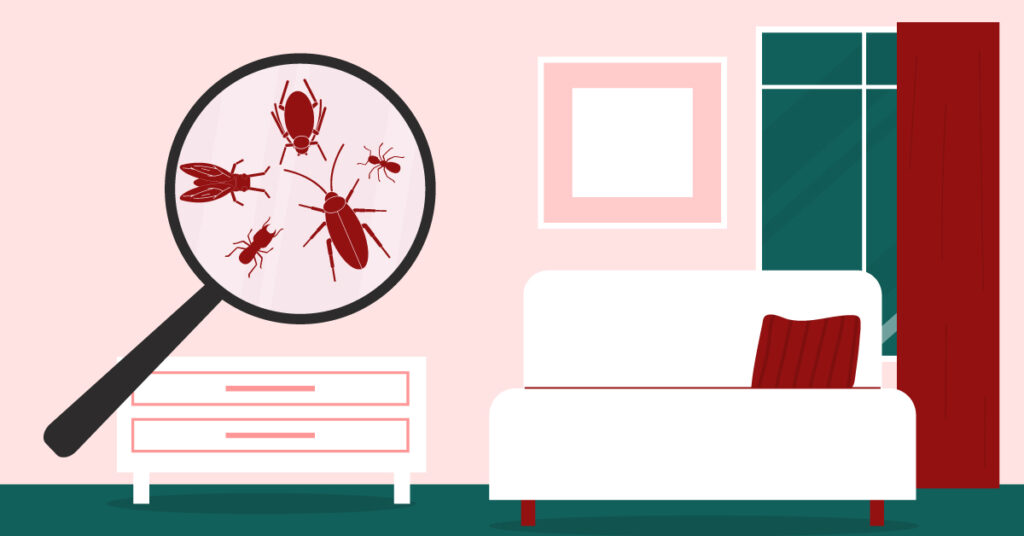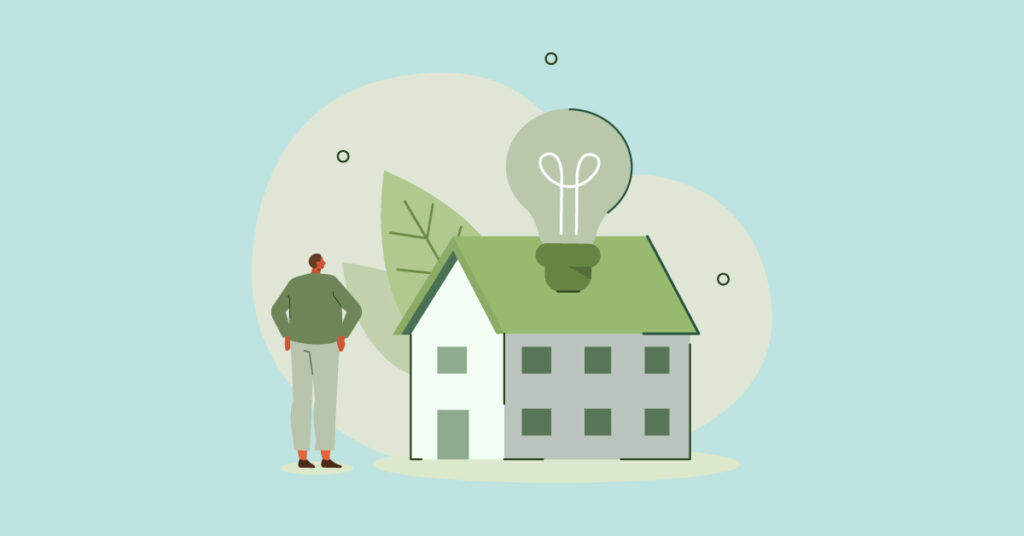Your HVAC system is responsible for keeping the air in your home at a comfortable temperature. Having a functional and efficient system is necessary not only to regulate the indoor air temperature but also to control the humidity. The ideal HVAC system will improve your comfort level, boost the air quality, and even prevent damage to the home itself from mold, mildew, warped wood, burst pipes, and more.
Understanding the Function of an HVAC System
An HVAC system, short for Heating, Ventilation, and Air Conditioning, is a combination of parts and technology that allow you to control the heating and cooling in your home. There are different types of HVAC systems available. Each has its advantages and disadvantages that can help you determine which one is best for your home while fitting into your budget.
HVAC Systems: Types and Costs
Costs can vary widely by HVAC type and depend on many factors:
- Product type and brand
- Installation complexity
- Labor costs
- Unit size and capacity
- Energy efficiency rating
- Unit location
- Ductwork and vents
- Electrical work
- Zones and controls
- Permits
Only some installations will include all the possible fees. You must speak with your contractor to get a cost estimate tailored to your home and preferences.
Heat Pump
Heat pumps are a common option because they can be used for both heating and cooling. A heat pump transports warm air from one space to another and costs an average of $4,000 to $8,000.
Furnace and Air Conditioner
Another common choice is a forced-air furnace for heating and air conditioning. A gas furnace costs $1,800 to $4,000, an oil furnace costs $4,200 to $6,900, and an electric furnace costs from $1,600 to $2,500. AC units normally use electricity.
Boiler
A boiler provides your home with hot water and heat by heating water and then pumping that heated water or steam through a system of pipes and radiators or baseboards. It generally costs anywhere from $1,500 to $8,000.
Ductless Mini Split Systems
This one is good for homes that can’t use the traditional ductwork. Instead, you have separate units in each room, all connected to a single outdoor unit to provide temperature control for your entire home. Installation costs from $2,000 to $16,500, depending on how many units you need.
Split Systems
This system is split between a heating unit and a cooling unit controlled by a thermostat. The outdoor part houses the condensing unit, and the indoor unit houses the furnace or heat pump. It costs $3,000 to $9,000.
Hybrid Split Systems
The hybrid system is a more energy-efficient version of the split system. It can use either a gas-powered heater or switch over to electric and runs between $3,000 and $15,000.
Comprehensive Systems
Also called packaged systems, these are smaller than split systems and use heating and cooling components housed together in a single outdoor unit. On average, the price ranges from $5,000 to $15,000, but it can reach as much as $30,000.
Your Ideal Home Heating and Air Conditioning System

Know what factors to look for to help you narrow down your options.
Regulated Temperature
The right HVAC system should reach your desired temperature and keep it there.
Air Quality
A high-quality system can help remove pollutants and other irritants contributing to asthma and allergies. Many have built-in humidifiers, dehumidifiers, and air purifiers.
Energy Efficiency
Having a heating and cooling system that reduces energy use is important to keep your energy usage and utility bills down. Check for a furnace’s annual fuel utilization efficiency (AFUE) and an air conditioner’s seasonal energy efficiency ratio (SEER).
Size and Capacity
Purchase a system that has the capacity to heat and cool the size of your home evenly. An undersized system may run continuously without ever reaching the right temperature, while an oversized HVAC system can cycle more often and wear out faster. Your contractor can help you determine the right size unit for your home.
Compatible with Thermostat
A programmable, aka smart thermostat, allows you to set your desired temperature within a space and have the HVAC system recognize and fulfill the temperature requirements you set. Modernized versions even give you access to your thermostat settings from anywhere you have service via a smartphone app.
Quiet Operation
Some systems are whisper-quiet, while others can create a good deal of noise while running.
Affordable Price
If you’re like most people, then your chosen HVAC system’s purchase and installation cost is a big factor. Staying within your budget is important; however, don’t only look at the initial price tag. It may be worth spending a little more upfront if your HVAC choice will last longer than others and reduce your energy costs.
Low Maintenance
All HVAC systems require regular maintenance to monitor performance, check for issues, and ensure efficiency. However, purchasing an affordable system that is durable and requires little maintenance can help reduce your ongoing costs.
Warranty
Despite the long lifespan of many HVAC systems, it’s always possible for something to go wrong or break> You must buy an HVAC system that’s covered by a warranty that covers the costs of common repairs or full replacement if something goes wrong.
Contractor
Finally, consider the availability of reputable contractors in your area that provide installation, maintenance, and repair services for the type of HVAC system you want. Each one requires some level of customization to fit properly into your home and its unique requirements. Therefore, you need to hire a licensed and skilled contractor capable of evaluating your needs, providing honest recommendations, and completing the necessary work safely.
You might also be interested in: The Benefits of Geothermal Heat Pumps for Your Home




